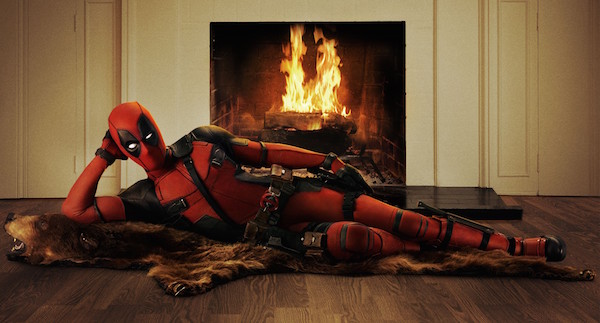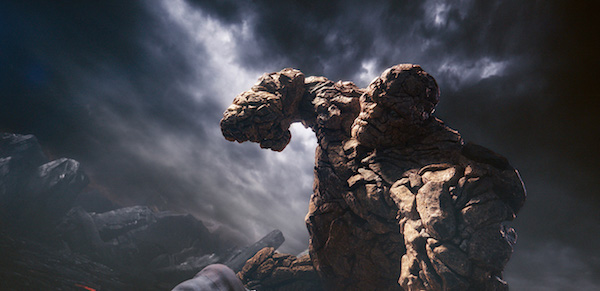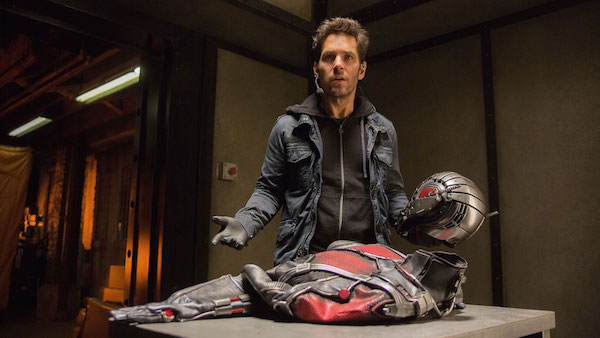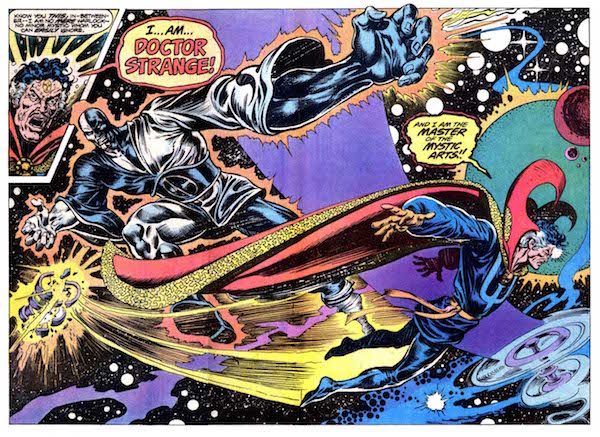
BY SEAN EGAN | At the behest of a friend, and against my better judgment, I entered the Lincoln Center AMC on the evening of April 29, 2015 and braced myself for a 29-hour marathon of the 11 movies that comprised the Marvel Cinematic Universe (MCU). Resigned to dropping all semblance of adult responsibility and most contact with the outside world, we took our seats amongst Gotham’s most passionate comic book movie fans. People shouted along to their favorite lines, applauded the heroes, booed the baddies, and exchanged fan theories in the brief down time between screenings.
The whole thing was created as a lead up to the premiere of Joss Whedon’s “Avengers: Age of Ultron,” the sequel to his 2012 blockbuster, “The Avengers.” Just before the movie was set to begin, the theater of rabidly devoted fans was at a fever pitch, chanting, “AGE-of-UL-tron,” and stomping for the film as though it was a sporting event. When the lights went down, I, along with everyone else, gasped, laughed and cheered through all 141 minutes. By the end, I felt pummeled into submission, and kinda cosmically disoriented — but everyone seemed giddy and elated by the film. Words like “awesome” and “amazing” were thrown around liberally.
At least for the first few minutes, until the surface pleasures wore off.
As the hardcore superhero aficionados regrouped outside to begin deconstructing what they saw, murmurs of discontent clouded the air. Before long, a consensus formed: the film was jumbled and overstuffed — and this sense of dissatisfaction now seems like a microcosm of the wider viewing public’s dwindling tolerance for comic book creations that make the leap to the big screen. But are these murmurs of discontent a death knell, or just growing pains?
Since the May 1 release of “Ultron,” countless pundits have trotted out variations on that old “comic book movies are dying” chestnut, which turned the corner from trite cliché to an annual institution sometime around 2007’s “Spider-Man 3.” But the doomsayers may have a leg to stand on this time around, though, because this summer’s offerings have been met with an underwhelming response from audiences.
“Ant-Man” (the 12th installment of the MCU) was a minor critical success despite its troubled production history, but remains one of their lowest grossing outings to date — likely due to its less than marquee-name hero. And Fox’s “Fantastic Four” (a bid to reboot after two poorly received films in 2005 and 2007) crashed and burned like a drunken Human Torch, with everyone pretty much agreeing it got next to nothing right. Not a great harbinger when there are dozens of comic book movies on the docket through 2020. Therefore, there’s no better time to take stock of what’s been done right, and what’s gone horribly wrong. Despite a less than super-summer, I believe that all hope is not lost for America’s favorite subgenre. I have to, seeing as an amusing calculator designed by Slate predicts 342 more comic movies will be released before I kick the bucket.

WHY THEY WORK, AND WHEN THEY WORK
Studios had to have done something right to inspire the devotion seen in my Ultimate Marvel Marathon compatriots, and the similar fanatical reactions of DC fans to recently released Comic Con footage.
The current crop of comic flicks seems uniquely styled to resonate with this generation of media consumers. In the age of Netflix and Hulu, everything’s designed to be binged, and the MCU has tapped into this increasingly dominant form of consumption exceptionally well.
Starting all the way with 2008’s “Iron Man,” Marvel Studios forewent standalone stories in favor of creating an interlocking world of overarching narratives — first culminating in “The Avengers” (the fourth highest grossing movie ever). Instead of simply having direct sequels, the events of one movie reverberate in others. This style of plotting, and the details within, have made them perfect for repeat viewing and TV-like binging — probably why the Ultimate Marvel Marathon had a sold-out house.
Marvel has embraced this serialized style, a move made clear by those they’ve hired. “Thor: The Dark World” was handled by “Game of Thrones” and “Mad Men” director Alan Taylor. Veteran sitcom-directing siblings Joe and Anthony Russo took on “Captain America: The Winter Soldier,” and will helm 2018/2019’s “Avengers: Infinity War,” the two-chapter conclusion to this Avengers era. And the king of cult TV himself, Joss Whedon, got the Avengers saga off to its impressive start. In fact, the tendrils of Marvel’s empire now extends to actual TV, with “Agents of S.H.I.E.L.D.” and “Agent Carter” enjoying success on ABC.
Netflix has gotten in on the action by releasing the popular “Daredevil” earlier this year, and has plans for four more series (including “Jessica Jones” and “Iron Fist”). All promise to enhance and deepen the multi-layered story the MCU has been weaving.
Granted, the MCU’s narrative might seem like a labyrinth of jargon-y nonsense to the uninitiated — but for those in the know, it’s exceptionally addictive. Plus, it’s easy to get casual fans hooked when gregarious movie stars like Robert Downey Jr. and Scarlett Johansson are the ones spouting off dense passages of techno babble and plot points. Marvel (and others) just need to remember to keep that kind of stuff in check, lest their films become impenetrable and cluttered (generally acknowledged to be a key reason behind the lukewarm reception of “Age of Ultron”).
After being proven successful, a business model that once seemed like a crazy gamble has now become the industry standard everyone’s following — albeit to varying results. Sony found that they were not able to build a universe solely around Spider-Man, and will now be playing ball with Marvel Studios, allowing the character to appear in the MCU — first in “Captain America: Civil War” (2016), then in a 2017 solo feature. Fox managed to retrofit its “X-Men” franchise (ongoing since 2000) into a cinematic universe via the zippy, stylish “First Class” and “Days of Future Past.”
Outside of Christopher Nolan’s acclaimed “Dark Knight” trilogy, Marvel’s rival, DC, stumbled out of the gate by offering the tepidly received standalone “Green Lantern.” Now they’re course correcting, with a slate of films that will quickly introduce most of the Justice League for its own cinematic universe. The first one of which, next summer’s “Batman v Superman: Dawn of Justice,” stars Ben Affleck, and is a follow-up to Zach Snyder’s divisive “Man of Steel.” Its trailer is intriguing, and seems to indicate Snyder will be addressing the criticisms of its predecessor — most specifically, Superman’s reckless and destructive behavior in its climax.

Another part of the reason that comic book films remain viable is their ability to vary in tone, from the conspiracy-thriller leanings of “Winter Soldier” to the space opera of “Guardians of the Galaxy.”
This kind malleability draws distinctive filmmakers to work within the genre yet stay true to their own style, yielding exciting and unexpected results. Early on in the MCU, Kenneth Branagh brought spacey visuals and canted angles to “Thor.” Later, Shane Black employed his signature sharp wit in “Iron Man 3,” and the distinct comedic flavors of screenwriters Edgar Wright and Adam McKay and director Peyton Reed were recognizable in the hilarious, underrated “Ant-Man.” Faring best was the surprise smash “Guardians of the Galaxy,” which James Gunn brought his dark and goofy Troma-influenced humor to. Even lesser-tier properties like 2018’s “Aquaman” can inspire excitement, with populist auteur James Wan signed on to direct.
GET DIVERSE, GET WEIRD, GET HYPED
The question going forward is, how can Hollywood build off of the groundwork they’ve laid for their franchises, other than simply making sequels (Thor, Cap, and the Guardians already have theirs confirmed) and going bigger? One of the most common complaints about comic book movies (and rightfully so) is their profound white maleness, with characters like MCU’s Nick Fury, Black Widow and Falcon relegated strictly to supporting roles.
For their part, Marvel is looking to diversify their roster. In 2018, Chadwick Boseman will star in “Black Panther,” the first MCU movie to be led by a black superhero, with a “Captain Marvel” adaptation to follow later in the year, the first female-led MCU movie. DC will release a solo “Wonder Woman” movie in 2017, prior to the first “Justice League” movie. This is a good first step in order to make comic book movies more diverse, inclusive and interesting.
In addition, if the success of “Guardians of the Galaxy” (and to a lesser extent, “Ant-Man”) has proven anything, it’s that studios should be willing to embrace the quirks and oddities of their source material.
One of the most promising upcoming Marvel properties is the supernatural-tinged “Doctor Strange” (2016), which will see Benedict Cumberbatch play the prickly, titular surgeon, who also happens to be a so-called Sorcerer Supreme. The film will reportedly be “dark” and “psychedelic,” according to its cinematographer, Ben Davis, and it’s exciting to imagine what the adaptation of this trippy, magic-filled comic will look like on the big screen.

Elsewhere, Fox’s upcoming “Deadpool” (2016) is a movie that would only be a pipe dream just a few years ago — an R-rated, fourth-wall breaking action comedy starring a foul-mouthed mercenary on the periphery of the X-Men universe. It’s a testament to the fact that the longer this genre makes money, the more it can afford to twist and contort itself.
The current darling of the Internet hype train is DC’s “Suicide Squad,” whose forward momentum has continued to escalate with the release of its masterfully cut trailer. Set to drop next summer, the film boasts the novel premise of supervillains from DC’s rogues’ gallery working on, appropriately enough, a suicide mission for the government. Its diverse and talented cast has Margot Robbie as Harley Quinn, Jared Leto as the Joker, and Will Smith playing against type as the grizzled assassin Deadshot. With David Ayer (“Fury”) directing, fans can expect a gritty, intense and thrilling flick — and quite a bit of twisted humor, if the trailer is any indication.
With this much promise, there’s no reason studios can’t maintain the kind of quality their best comic book movies have achieved, and maybe even surpass them. If that’s the case, I’m sure I won’t be the only one crazy enough to sign up for the next mammoth movie marathon — even if it lasts a whole week.































